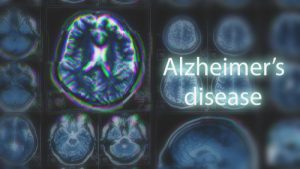
Bipartisan legislation to fight Alzheimer’s disease sponsored by U.S. Sen. Susan Collins (R-ME) on March 4 received unanimous approval from the U.S. Senate as part of a larger bill to improve services for America’s elderly population.
Sen. Collins in March 2019 introduced the Younger Onset Alzheimer’s Disease Act, S. 901, with original cosponsors U.S. Sens. Bob Casey (D-PA) and Shelley Moore Capito (R-WV) to support American citizens under the age of 60 who experience the early onset of the disease by ensuring the availability of and access to certain programs and services.
“The progression of Alzheimer’s disease is devastating, regardless of whether someone is older than 60 or younger than 60 when he or she is diagnosed,” said Sen. Collins, a founder and co-chair of the Congressional Task Force on Alzheimer’s Disease. “Since Alzheimer’s is not restricted by age, neither should the programs designed to assist these Americans and their families.”
Her measure became part of the Supporting Older Americans Act (OAA) of 2020, H.R. 4334, which would establish, reauthorize and revise several programs administered by the U.S. Department of Health and Human Services and the U.S. Department of Labor related to care for the elderly. H.R. 4334 now has been approved by both chambers of Congress.
“I want to thank Senator Collins for her leadership to ensure the key elements of the Younger Onset Alzheimer’s Disease Act were included as part of the OAA reauthorization,” said Robert Egge, chief public policy officer of the Alzheimer’s Association and executive director of the Alzheimer’s Impact Movement.
“Thanks to this important bipartisan work, all Americans living with Alzheimer’s will have access to the same high-quality care and support services — regardless of age,” he said.



